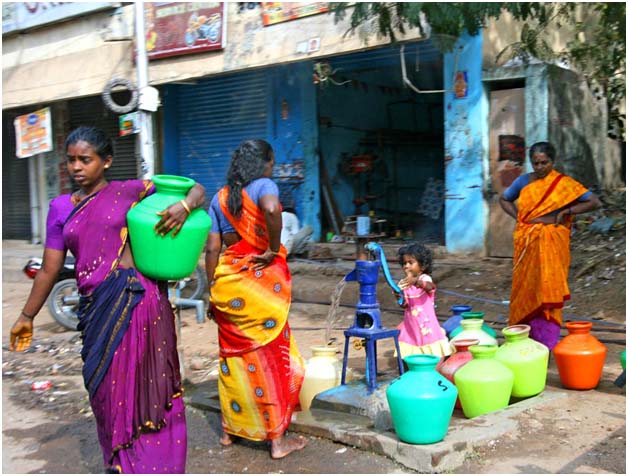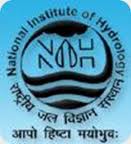/regions/political
Political
WaterAid India invites applications for Programme Officer, Lucknow - Apply by February 10, 2012
Posted on 10 Feb, 2012 01:11 AMContent courtesy: DevNetJobsIndia
![]()
WaterAid India (WAI) is an international nongovernmental organisation focused exclusively on improving poor people’s access to safe water, improved hygiene and sanitation in developing countries. WaterAid is an equal opportunities employer.
UNICEF invites applications for WASH Specialist, Patna - Apply February 10, 2012
Posted on 10 Feb, 2012 12:38 AMContent courtesy: DevNetJobsIndia

Description:
WASH Specialist (This vacancy is for Indian nationals only)
SCDS invites applications for Senior Programme Manager - WASH, Bhopal - Apply by February 10, 2012
Posted on 10 Feb, 2012 12:27 AMContent courtesy: DevNetJobsIndia

Samarthan is a support organisation working in the area of participatory development and governance primarily in the states of Madhya Pradesh and Chattisgarh since 1995. We strengthen civil society organisations, Panchayats and Urban Local Bodies and provide a supportive bridge between the voices of the underprivileged and policy makers.. Samarthan is a leading NGO in Madhya Pradesh and Chhattisgarh working on various projects supported by Ford foundation, UNFPA, SJTT, UNICEF, UNDP, Water Aid etc.
FES invites applications for Senior Project Officers/Project Officers, India – Apply by February 10, 2012
Posted on 10 Feb, 2012 12:10 AMContent courtesy: DevNetJobsIndia
![]()
The Foundation for Ecological Security (FES) works towards the ecological restoration and conservation of land and water resources, in a variety of eco-fragile and degraded landscapes across the country. The projects of FES are located in three of the ten bio-geographic zones of the country including the Semi-arid regions, the Deccan plateau in peninsular India and the Coast. Our work is focused on common lands, collectively managed by the local communities and upon which large sections of the community especially the poor continue to depend upon for their sustenance and livelihood. Currently, FES is working in about 2,200 villages, in 27 districts, addressing about 1,30,000 hectares of common land in the states of Gujarat, Rajasthan, Orissa, Madhya Pradesh, Andhra Pradesh, Karnataka and Northeast.
Water conservation, sustainable agriculture, challenges for rural development in Maharashtra and possible solutions - Talk by Popatrao Pawar, Sarpanch, Hivre-Bazar
Posted on 09 Feb, 2012 04:49 PMShri Popatrao Pawar is an inspiring promoter of the 'Ideal Villages Movement' on "Integrated Agriculture and Rural Development for Tomorrow's Maharashtra" on the occasion of the inauguration of Observer Research Foundation's Maharashtra@50 Study Centre on 24th June 2010.
Lift irrigation - Methods and practices: A manual by Mihir Maitra (AFPRO)
Posted on 09 Feb, 2012 12:07 PMAccordingly, the book is written as a technical manual that remains accessible to people seeking to gain necessary expertise in the planning, design, installation and maintenance of lift irrigation systems (LIS).
Governing the urban poor - Riverfront development, slum resettlement and the politics of inclusion in Ahmedabad - A paper published in EPW
Posted on 08 Feb, 2012 11:58 AMSabarmati Riverfront Development (SRD) project, an urban mega-project in Ahmedabad has been proclaimed as a case based on “flexible governing” of the residents of the riverfront informal settlements.
Safe water dissemination workshop by PATH held on January 19-20, 2012 at New Delhi
Posted on 07 Feb, 2012 10:15 PMGuest post: Amita Bhaduri
Through the Safe Water Project, it is seeking complementary solutions to sustainability and scale-up by exploring the potential for commercial enterprises to produce, distribute, sell, and maintain Household Water Treatment and Storage (HWTS) consumer products to low-income populations. The workshop shared learnings and tools from PATH’s Safe Water Project and presented the experiences of other organizations that are leveraging market-based approaches to achieve a sustainable public health impact.

Water quality monitoring of lakes in and around Bangalore city
Posted on 07 Feb, 2012 03:05 PMIt describes the efforts undertaken by the Karnataka State Pollution Control Board to launch a programme to monitor the water quality of some of the lakes in Bangalore so as to focus the attention of concerned governmental organisations to take up remedial measures to safe guard the water bodies of the "Garden City".
The sources of pollution in lakes are mainly identified as:
National symposium on "Water Resources Management in Changing Environment -2012", IAH, February 8-9, 2012, Roorkee
Posted on 07 Feb, 2012 02:03 PMOrganizer: Indian Association of Hydrologists (IAH)
Venue: National Institute of Hydrology (NIH), Roorkee

Description:
Water resources management requires a holistic and integrated view that considers the surface and groundwater together and also the direct human / indirect human needs. The sustainable management of water resources should base on an integrated approach linking development and protection of the natural environment, on the participation of all actors and concerned people and on the recognition of the economic and social value of water. We must promote the integration of all aspects of planning, management and protection of water resources by developing plans which aim to satisfy basic needs and to promote equitable and effective distribution of water resources, ecosystem protection and maintenance of the water cycle. Climate change, land use change and the hydrological variability of water's distribution and occurrence are natural driving forces that, when combined with the pressures from economic growth and major population change, make the water resources management a challenge. Water management plans should consider the best existing practices and the most advanced scientific breakthroughs.